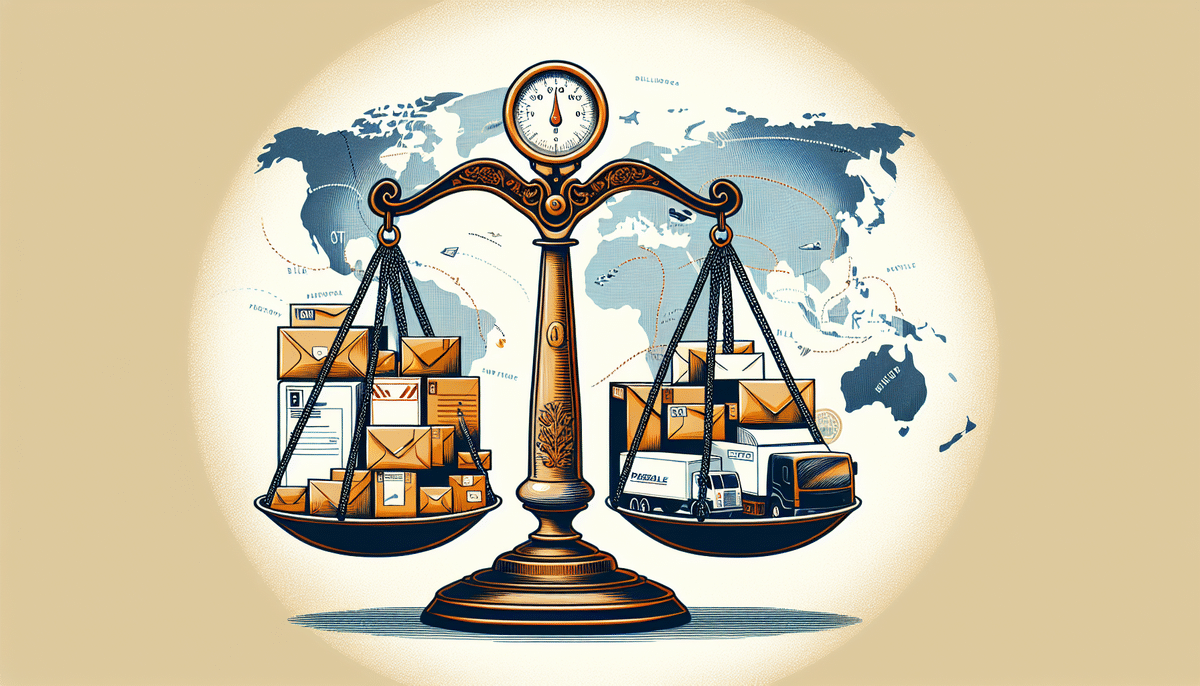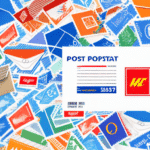Comprehensive Comparison of Pitney Bowes and UPS
When selecting a shipping provider, businesses often consider industry giants like Pitney Bowes and UPS (United Parcel Service). Both companies offer a wide range of shipping solutions tailored to various business sizes and needs. This article provides an in-depth analysis of Pitney Bowes and UPS, examining their services, pricing, delivery times, customer support, and more to help you determine which provider best suits your business.
Company Overviews
History of Pitney Bowes
Pitney Bowes was established in 1920 by Arthur Pitney and Walter Bowes, initially focusing on manufacturing postage meters. Over the years, the company expanded its offerings to include shipping and mailing equipment, software, and data analytics services. Today, Pitney Bowes operates in over 100 countries, providing integrated solutions that cater to modern mailing and shipping requirements.
History of UPS
Founded in 1907 in Seattle, Washington, UPS began as a messenger and delivery service. It has since grown into a global logistics powerhouse, offering transportation, e-commerce, and supply chain management solutions. UPS serves customers in more than 220 countries and territories, continuously adapting to the evolving demands of international shipping and logistics.
Services Offered
Pitney Bowes Services
- Domestic and International Shipping
- Presort Services for Postage Savings
- Software Solutions for Data Management
- Customized Solutions for Healthcare, Financial, and Government Sectors
UPS Services
- Domestic and International Shipping
- Express and Same-Day Delivery
- E-commerce Solutions: Warehouse Management, Order Fulfillment, Package Tracking
- Specialized Logistics for Healthcare, Automotive, and Aerospace Industries
Both Pitney Bowes and UPS offer a comprehensive suite of services, but UPS is particularly renowned for its advanced e-commerce solutions and extensive logistics network, making it a preferred choice for businesses with complex supply chains.
Shipping Rates and Pricing
Both Pitney Bowes and UPS provide competitive pricing structures that vary based on package size, weight, destination, and selected services. Pitney Bowes offers postage meters and shipping software that can lead to long-term savings on postage costs. UPS, on the other hand, provides volume discounts and flexible pricing options tailored for e-commerce businesses.
Additional services such as insurance, Saturday delivery, and international shipping can impact overall costs. It's essential for businesses to assess their specific shipping requirements and compare the pricing options to identify the most cost-effective solution.
Delivery Speed and Timeframes
Pitney Bowes Delivery Options
- Standard Shipping: 1-5 business days
- Express Mail: 1-2 business days
- Priority Mail: 1-2 business days
UPS Delivery Options
- Ground Shipping: 1-5 business days
- Air Shipping: 1-3 business days
- Express Delivery: 1-3 business days
UPS is particularly known for its faster shipping times, especially for express and international deliveries. Businesses requiring expedited shipping may find UPS's offerings more aligned with their needs.
Tracking and Monitoring Capabilities
Effective tracking and monitoring are crucial for ensuring transparency and reliability in shipping operations. Both Pitney Bowes and UPS offer robust tracking tools, but they have distinct features.
Pitney Bowes Tracking Features
- Package Tracking and Delivery Confirmation
- Detailed Analytics and Reporting
- Predictive Delivery Using Machine Learning
UPS Tracking Features
- Real-Time Package Tracking
- Email Notifications and Delivery Alerts
- UPS My Choice for Delivery Customization
Pitney Bowes' "Predictive Delivery" utilizes machine learning to forecast delivery dates and times, aiding businesses in inventory management and staffing. Conversely, UPS's "My Choice" allows customers to personalize their delivery preferences, enhancing convenience and control.
Customer Service and Satisfaction
Customer service quality is a pivotal factor when choosing a shipping provider. Both Pitney Bowes and UPS receive high ratings, though there are subtle differences.
According to a recent Consumer Reports survey, Pitney Bowes scored 89 out of 100 for customer service, slightly higher than UPS, which scored 87 out of 100. Customers have commended Pitney Bowes for their knowledgeable and friendly support representatives and prompt response times. UPS is also praised for its effective and efficient customer service, though some users have reported longer wait times during peak periods.
International Shipping Capabilities
For businesses engaged in international trade, the global reach of a shipping provider is crucial.
Pitney Bowes International Services
- Customs Clearance and Compliance
- Operations in Over 100 Countries
UPS International Services
- Extensive Global Network in Over 220 Countries and Territories
- Access to Over 5,000 Customs Officials
UPS's expansive international presence and resources make it an advantageous choice for businesses with significant global operations. Additionally, alternatives like DHL and carbon-neutral services such as Sendle offer specialized international shipping options that businesses might consider based on their specific needs.
Choosing the Right Provider for Your Business
Selecting the appropriate shipping provider involves evaluating various factors:
- Package Size and Weight
- Shipping Destinations
- Delivery Speed Requirements
- Customer Service and Support Needs
- Cost Considerations
Businesses should conduct a thorough comparison of both Pitney Bowes and UPS, considering these aspects to determine which provider aligns best with their operational requirements and budget constraints.
Case Studies and Expert Opinions
Numerous businesses have transitioned between Pitney Bowes and UPS based on evolving needs. For instance, companies may migrate to UPS to leverage its advanced e-commerce solutions, while others might prefer Pitney Bowes for their specialized postage and shipping software designed for small businesses. Reviewing case studies relevant to your industry can provide valuable insights into the effectiveness of each provider's offerings.
Industry experts suggest that Pitney Bowes excels in providing tailored solutions and cost-effective mailing services for small to medium-sized enterprises, whereas UPS is often favored by larger corporations seeking comprehensive logistics and international shipping capabilities.
Conclusion: Making an Informed Decision
Choosing the right shipping provider is a pivotal decision that can significantly impact your business's efficiency and customer satisfaction. Both Pitney Bowes and UPS offer a diverse array of services, competitive pricing, and strong customer support. By aligning your business needs—such as package volume, shipping destinations, delivery speed, and cost—you can select the provider that best supports your operational goals and ensures seamless shipping experiences for your customers.




















